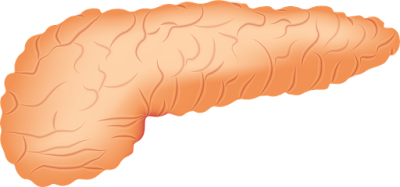Prevent prostate cancer - how to prevent?
How to prevent prostate cancer?
Prostat is located just below the bladder and is the size of a chestnut. The purpose is the production of prostate secretions, which is a component of the male sperm.Prostate cancer is diagnosed primarily in men who have completed 50 years, but more often suffer from it more and more younger men! In Western countries, it is the most common male cancer.
The most common symptom of improper functioning of the prostate is a problem with urination
. The enlarged gland pinches on the urethra, which comes to its narrow and there are problems with urination.
Other symptoms of a sick prostate is also frequent urination (usually during the night) or a feeling of pressure on the bladder.
When you examine the prostate?
Cancer of the prostate gland is insidious, because for many years, lesions may have no symptoms. Patients tend to have temporary problems with urination, which usually ignore, explaining that age.Meanwhile, frequent urination, even at night, any problems with urination, or feeling of pressure in the bladder, blood in the urine or semen are symptoms that absolutely should make any of the man, regardless of age !, to visit the control urologist.
In contrast, regular visits to the urologist to your calendar preventive testing should enter every man who has completed the 40th year of life. Because, as statistics show, the risk of prostate cancer increases with age, with most in the range from 50 to 80 years.
A visit to a urologist should be routine, periodic testing of every man, as well as gynecological examination in women.
Warning! We must remember that early detected prostate cancer is fully curable!Not detected or diagnosed too late, often metastasizes to bone, lymph nodes and other organs. Our neglect, usually dictated by a common fear of prophylactic examination of the prostate, so it can cost us the loss of life.
What is the study of the prostate?
The primary diagnostic tool in the direction of the lesion within the prostate digital rectal examination (from the Latin. Through the rectum). During the test, the doctor palpated assessing any possible changes in the gland. Most men considered this study as shameful, and in addition there is a perception that it is painful.Warning! Gentlemen, remember that you come to the doctor, whose aim is to heal. This medical examination like any other! Women still regularly visit a gynecologist and also lend themselves to intimate study!A complementary examination in the diagnosis of diseases of the prostate is not examining blood PSA levels. PSA is a protein present in blood, which produces just a prostate. Its high level indicates changes in the prostate, but not immediately prejudge the neoplastic lesions.
Warning! Elevated levels of PSA in the blood may also occur in inflammation or hypertrophy of the prostate.An additional study may be abdominal ultrasound or a biopsy of the prostate.
Note: The frequency of compulsory prostate check-ups depends on several factors. Men over the age of 50 should be examined at least once a year, as should those with a family history of prostate cancer. In contrast, younger men (aged between 20 and 49 years) should undergo examinations at least once every two years.
What is the treatment of prostate cancer?
One method of treating prostate cancer is surgery - radical prostatectomy. Also used are radiotherapy and hormone therapy. Healthy eating and active lifestyle is essential in the prevention of prostate cancer.Warning! Let us remember also control visits urologist, when I will complete 40 years and the absolute consultation with a doctor in case of alarming symptoms associated with urination.
Daily prevention of prostate cancer
Modern medicine offers a wide range of preventive examinations for the detailed and specialised diagnosis of diseases affecting the prostate gland. Despite the wide availability of medical options, men can also carry out daily prostate prophylaxis at home. Although we do not have full control over the onset and development of a possible disease, we can develop habits that will reduce the risk of their occurrence.
Physical activity is just one of the points that will help in the daily prevention of the prostate. Adequate nutrition is also extremely important: we should refrain from eating processed foods that are high in simple sugars and enrich our diet with fish, seafood, fruit and vegetables. In addition, our meals should contain large amounts of fibre, protein and elements such as sodium, zinc and potassium. Giving up stimulants is also an important element.
As you can see, the proper functioning of the prostate depends on the two factors of a proper lifestyle (sports activity, proper diet, giving up stimulants) and regular specialist consultations. So little is needed to ensure that health and wellbeing are accompanied.



Comments
Post a Comment